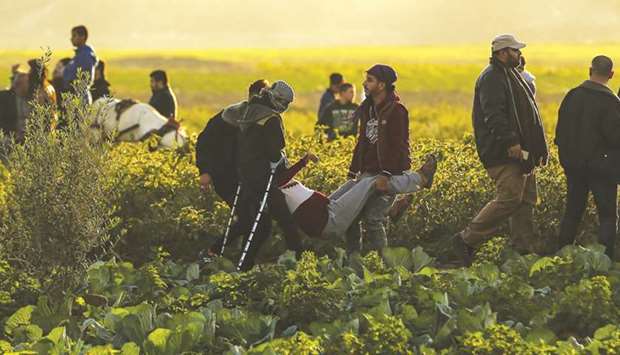“The Palestinians are still waiting for the international community to try to resolve the Palestinian problem that has been created by the international community,” with the foundation of Israel in 1948, Maliki told the MED Dialogues conference in Rome.
“Unfortunately, none of you is taking serious, credible and responsible steps to solve the problem,” Maliki told the assembled European and Middle Eastern leaders. Maliki slammed the US administration of President Donald Trump “which has really sided with Israel, taken the wrong side of history, of justice.”
The Palestinians have already vowed to block Trump’s peace plan and severed ties with his administration after his December decision to move the US embassy in Israel to Jerusalem and declare the city Israel’s capital.
The Palestinians also see the city as the capital of their future state and international consensus has been that Jerusalem’s status must be negotiated between the two sides.“If the Americans are not willing to do anything, Europe should do that,” Maliki said
“We should force the change to happen, that’s why we are pushing for a European role,” including backing an international peace conference. “It’s not our responsibility to protect the two-state solution, it’s your responsibility,” he said, without which Israel would continue to develop separate systems for Israelis and Palestinians, as it already does with road networks and public transport.
“I don’t believe any of you will accept another apartheid regime to emerge in the 21st century,” Maliki said.
Israeli parliament speaker Yuli-Yoel Edelstein, from Prime Minister Benjamin Netanyahu’s right-wing Likud party, was also attending the MED gathering and said the two sides should focus on co-operation.
“If the idea of peace process is again some theory of two courageous leaders in a room shaking hands and signing an agreement, that doesn’t work,” said Edelstein.
“The only way to get back to a situation where we can do something positive is co-operation in practical fields (like manufacturing or water management). We don’t need a comprehensive agreement to co-operate,” he said.
14 PROTESTERS INJURED
Meanwhile, at least 14 protesters were injured by live bullets while others suffocated from teargas inhalation yesterday as Israeli forces continued attacking the Great March of Return protests at Gaza-Israel border, according to the Ministry of Health, agencies reported from Gaza.
The forces fired live bullets and rubber-coated steel rounds at the protesters who gathered at many encampments along the border, injuring nine protesters, including a child, by live gunfire.
Some of the wounded were moved to hospital and others were treated in the field hospitals.
More than 210 Palestinians have been killed and over 22,000 others injured by Israeli forces since the outbreak of the Great March of Return protests at Gaza border on March 30.
Most of the casualties occurred on May 14 when Israeli forces attacked Palestinian protesters marking the 70th anniversary of Israel’s occupation of historical Palestine, elsewhere referred to as the Nakba of 1948, and the ensuing ethnic cleansing of half a million Palestinian refugees.

